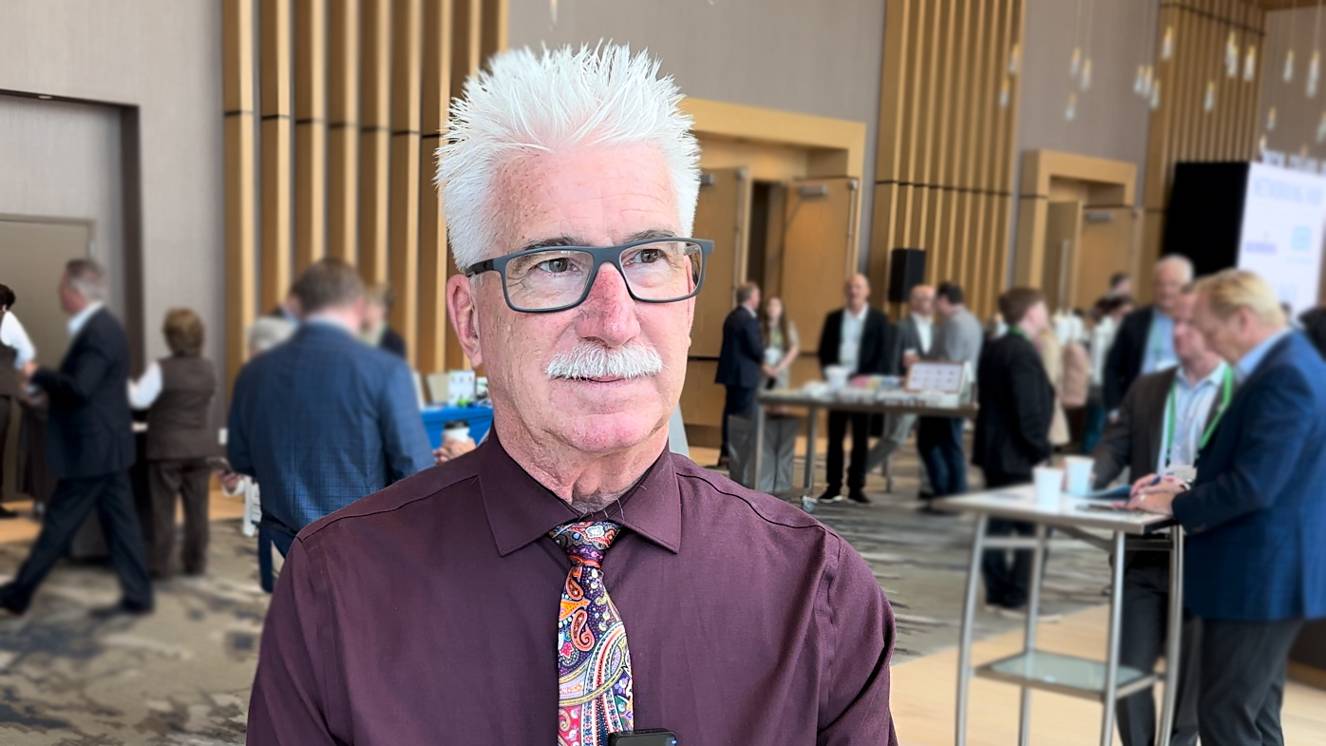Rhode Island
Half of Massachusetts residents support legalizing teachers’ strikes • Rhode Island Current

Massachusetts state leaders have said they have no appetite for changing Massachusetts law to make it legal for public teachers to go on strike, but public opinion is more on the union side. In a new CommonWealth Beacon/GBH News poll, 50% of state residents favored legalizing teachers’ strikes, while 34% said strikes should remain illegal, and 16% said they were unsure or did not answer (toplines, crosstabs).
The survey, conducted by the MassINC Polling Group, comes on the heels of strikes in five Massachusetts school districts over the last two years. It is illegal for public sector employees to strike in the state, but that hasn’t stopped a wave of walkouts signaling a more militant posture on the part of teachers’ unions. The longest – and most recent – strike closed schools in Newton for two weeks in late January and early February.
The poll results point to a strong degree of sympathy for teachers’ efforts to secure better pay and other changes, even if it means shutting down schools to get there.
“Even though strikes are disruptive and inconvenient for families, the polling suggests people in Massachusetts recognize that the ability to strike is a primary point of leverage that teachers have,” said Richard Kahlenberg, director of the American Identity Project at the Progressive Policy Institute, a Washington, DC-based think tank.
The push to change state law to legalize teachers’ strikes, which is being led by the Massachusetts Teachers Association, the state’s largest teachers’ union, is taking place amid a surge of favorable public opinion toward organized labor. Since the 1930s, Gallup has polled Americans on the broad question of whether they approve or disapprove of unions. The approval rating hit 71% in Gallup’s 2022 poll and was 67% in 2023, levels not seen since the mid-1960s.
Layered over that rise in sympathy for unions, said Michael Hartney, an associate professor of political science at Boston College, is the positive view many people hold of educators. “I think teachers are generally one of the professional groups that have a lot of latent trust among the public, maybe up there with physicians,” said Hartney, author of the 2022 book How Policies Make Interest Groups: Governments, Unions, and American Education.
The poll, conducted among 1,002 Massachusetts residents from March 22 to March 29, showed a strong partisan divide on the issue, with 60% of Democrats supporting legalizing teachers’ strikes and 26% opposed, compared with 42% of Republicans who favor legalizing strikes and 44% who oppose such a change. There was also stronger support for changing the law among Black respondents (63%) and Latino residents (62%) than among Whites (48%) or Asians (41%).
The widest demographic difference was by age, with 64% of those aged 18-29 in favor of making strikes legal compared with only 39% of those 60 and older, a 25-point swing. Among those 30 to 44, 55% support legalizing strikes and among those 45 to 59, 46% do so.
Part of the explanation for the strong support for legalizing strikes among younger people is that, as a group, they skew more Democratic. But young people have also been hit hard by rising economic inequality, the high cost of housing, and have been part of a new union push, still in its infancy, in sectors ranging from Amazon warehouse workers to Starbucks baristas.
While they have a much bigger presence in the public sector, unions represent only 10% of US workers today, half the rate of 40 years ago. Because of that steady decline, young people are “much less likely to have an uncle, an aunt, a parent – someone they know – who is in a union,” said Kahlenberg. “Union leaders feared that would translate into less sympathy for unions, but the economic conditions on the ground have shifted such that young people are rediscovering the importance of unions,” said Kahlenberg, author of a 2007 biography of Albert Shanker, a major figure in the US teachers’ union movement, who led the New York City teachers’ union and the national American Federal of Teachers from the 1960s to the 1990s.
Kahlenberg said teachers’ unions have also effectively sought to link their grievances when they strike with issues parents care about, such as smaller class sizes or more guidance counselors. “Obviously, in the short term, it’s not great for kids who are out of schools, but the argument teachers will advance is, the working conditions of teachers are the learning conditions of children,” he said.
How questions about teachers’ strikes are framed can have a big impact on poll results.
Just over a year ago, in March 2023, MassINC Polling Group asked about teachers’ strikes in a statewide survey commissioned by Democrats for Education Reform. Using wording similar to the new CommonWealth Beacon/GBH News poll, it explained that some teachers unions have gone on strike recently despite it being illegal under state law. Asked whether they favor legislation that would make it legal for teachers to strike, 45% of respondents said yes, while 40% said strikes should remain illegal.
A poll commissioned at the same time by Northwind Strategies, a Boston-based political consulting firm that generally works with left-leaning candidates and causes, found much stronger support for legalizing strikes when Massachusetts residents were asked whether they favor allowing teachers to strike “to fight for higher wages and improved working conditions.” When the question was posed with that language, 67% favored legalizing strikes and just 29% of respondents were opposed.
The Democrats for Education Reform poll revealed considerable confusion about basic facts concerning the teacher strike issue. Fully one-third of respondents thought it was already legal for teachers to strike compared with 45% who correctly said it was illegal.
While their unions are pushing legislation that would make it legal for teachers to strike, the prospects for the bill seem dim. The Democratic troika that sets the agenda on Beacon Hill – Gov. Maura Healey, House Speaker Ron Mariano, and Senate President Karent Spilka – all oppose changing the law.
“I think there’s a pretty clear rationale for not allowing public sector unions to strike, because they play a key role in the provision of public services and interruption of those can be pretty disruptive,” said Marty West, a professor at the Harvard Graduate School of Education and member of the state Board of Elementary and Secondary Education.
Paul Reville, a former state education secretary, said despite the fines handed out to striking teacher’s unions, the incentives not to engage in walkouts don’t appear to be strong enough to prevent them, and he thinks there will be more strikes in the future, even without a move to legalize them.
“Teachers have legitimate grievances and legitimate demands to be paid reasonably,” said Reville, a professor at Harvard Graduate School of Education. He said a new structure should be developed that “creates disincentives for school committees to drag the process out” in negotiating contracts and “at the same time, puts pressure on unions to bargain in good faith and not consider striking as an option.” Reville said such a system could involve a judge assigning an arbitrator to decide the terms of a new contract if no agreement is reached after a specified period of time.
“It’s in the public interest to avoid these kinds of strikes,” he said. “So if we create a policy that, in effect, mandates that they come to the table to settle or, if they can’t, turns over that power to an arbitrator, that would be best.”
This article first appeared on CommonWealth Beacon and is republished here under a Creative Commons license.
GET THE MORNING HEADLINES DELIVERED TO YOUR INBOX

Rhode Island
Newport To Offer City Manager Job To Navy Commander

NEWPORT, RI — The Newport City Council has offered the open city manager job to Colin Kennedy, an active duty commander in the U.S. Navy, currently serving in Newport.
City officials said the council will hold a special meeting immediately following its regular monthly session at 6:30 p.m. Wednesday, to disclose votes taken in executive session on the remaining candidates for city manager and the consideration and approval of the employment agreement for the appointment of Kennedy. The meeting, which is open to the public, will take place in the second floor city council chamber.
The vote is expected to conclude a months-long search process that attracted more than two dozen candidates from across the country interested in serving as Newport’s top executive. Over the course of the recruitment process, which concluded in January, the city received 27 applicants from 13 states.
A screening committee made up of local and state officials, including Middletown Town Administrator Sean Brown, former Warren Town Manager Kate Michaud, and Ernie Almonte, the former Rhode Island auditor general and current executive director of the Rhode Island League of Cities and Towns, were tasked with reviewing the applications before passing along 10 applicants to the Newport City Council for final review. Of that applicant pool, the council selected five top candidates for remote interviews held via Zoom in early April.
After the final interview on April 8, the council invited their two top candidates to a second round of in-person interviews held on April 20. On April 24, the council voted in an executive session to extend a formal offer to Kennedy.
A graduate of the U.S. Naval Academy with a concentration in oceanography, Kennedy has over two decades of executive-level management expertise as an officer in the U.S. Navy, city officials said. Kennedy holds two master’s degrees, one in public administration from the University of Oklahoma and another in national security and strategic strategies from the Naval War College in Newport.
City officials said Kenney’s career accomplishments include a track record of spearheading large strategic initiatives, leading large, diverse teams, managing complex budgets, and fostering collaborative partnerships. He currently serves as the chief executive officer of the Navy Reserve Center Newport and, before that, was director of travel for the Navy Reserve Forces Command, where he had oversight of logistics for the activation and movement of 50,000 reservists.
In addition to his administrative service, Kennedy served on four warships and deployed five times in support of combat operations, United Nations Security Council resolutions, and theater security cooperation with allied navies.
Have a news tip? Email jimmy.bentley@patch.com.
Rhode Island
GoLocalProv | News | RI Businessman Who Goes by “G Money” is Being Sued by SEC for Fraud and Securities Violations

Rhode Island
NOAA groundbreaking for Rhode Island marine operations center

May 6, 2024

A May 6 groundbreaking event in Rhode Island marked the start of building a new $146.7 million marine operations center for the National Oceanic and Atmospheric Administration.
The future homeport of the NOAA Marine Operations Center-Atlantic is planned for Naval Station Newport in Rhode Island, where the U.S. Navy awarded $146,778,932 to Skanska USA to build the new NOAA facility.
The plan includes a pier to accommodate four large vessels, a floating dock for smaller vessels, space for vessel repairs and parking, and a building to be used for shoreside support and as a warehouse. Construction is anticipated to be completed in 2027.
“The new, state-of-the-art Marine Operations Center-Atlantic facility is critical to NOAA’s mission and delivering on our commitments to regional, international and other diverse partners,” said NOAA Corps Rear Admiral Nancy Hann, director of the NOAA Commissioned Officer Corps and NOAA Marine and Aviation Operations. “Newport has always been a welcoming community to NOAA, and we are appreciative of the support from local, state and congressional leaders, as well as our mission partners at Naval Station Newport.”
Rhode Island’s Congressional delegation pushed for co-locating the NOAA base at Newport.
“NOAA is the top scientific weather and oceans agency and I was pleased to help Rhode Island land MOC-A. Naval Station Newport’s location and the years of strategic federal investments we’ve made here are really paying off. Bringing NOAA’s premiere research fleet and Atlantic operations center to the Ocean State means hundreds of jobs for Rhode Island and a brighter future for our Blue Economy,” said Sen. Jack Reed, D-RI.
NOAA’s fleet of 15 research and survey ships are operated, managed and maintained by NOAA Marine and Aviation Operations. Ranging from large oceanographic research vessels capable of exploring the world’s deepest ocean, to smaller ships responsible for charting the shallow bays and inlets of the U.S., the fleet supports a wide range of marine activities, including fisheries surveys, nautical charting and ocean and climate studies. NOAA ships are operated by NOAA Corps officers and civilian professional mariners.
-

 News1 week ago
News1 week agoBoth sides prepare as Florida's six-week abortion ban is set to take effect Wednesday
-

 Politics1 week ago
Politics1 week agoGOP Rep. Bill Posey won't seek re-election, endorses former Florida Senate President as replacement
-

 World1 week ago
World1 week agoRussian forces gained partial control of Donetsk's Ocheretyne town
-

 World1 week ago
World1 week agoZelenskyy warns of Russian nuclear risks on Chernobyl anniversary
-

 Politics1 week ago
Politics1 week agoHouse Republicans brace for spring legislative sprint with one less GOP vote
-
Movie Reviews1 week ago
Challengers Movie Review
-

 World1 week ago
World1 week agoAt least four dead in US after dozens of tornadoes rip through Oklahoma
-

 Politics1 week ago
Politics1 week agoAnti-Trump DA's no-show at debate leaves challenger facing off against empty podium



















